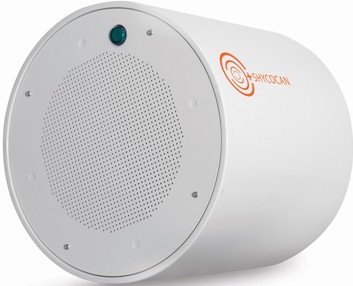TBB BUREAU
BHUBANESWAR, OCT 5, 2021
Festivals are an expressive way to celebrate our glorious heritage, culture and traditions. But in the times of the coronavirus pandemic, these joyous occasions raise fears, sparking apprehension about the spread of the dreaded virus, as we have seen. This year we can approach the festive season safely and make it truly special for our loved ones by gifting them the Shycocan. This is a revolutionary Viral Defence System that can disable the entire family of Coronavirus with up to 99.9% efficacy indoors and it is100% safe for humans, animals, and the environment- just the right product to put you in the festive spirit.
The Shycocan is certified as a CE European Union Class-I Device and already conforms to the regulatory requirements of US, Canada, Mexico, UK, Germany, Spain, Italy, France, Belgium, Netherlands, UAE, Qatar, Singapore, Malaysia, South Africa, Botswana, Australia, New Zealand, and India among others.

The device, built in 2018, even before the pandemic, was developed after a decade of research by an Indian scientist and inventor, Dr Rajah Vijay Kumar. Shycocan covers an area of up to 1,000 square feet of uninterrupted enclosed spaces, and one could simply use multiple devices for larger areas. It has no consumables or filters and consumes just as much electricity as a 40-watt light bulb, making it practically a low to no-maintenance cost device. It is effective for both surface and air-borne viruses and is backed by a global service and support network, besides a one-year replacement warranty.
The aim of the device is to protect lives and livelihoods from current and future pandemics and make the world a safer place. In addition, its innovative technology helps bring business back to business and life back to normal in a safe and sustainable manner. Designed using a new Photon Mediated Electron Emission technology, it was tested and found to disable the entire Coronavirus family with up to 99.9% efficacy indoors after being tested across multiple accredited virology labs worldwide. This includes TNO, Netherlands, where the device was tested on the most resilient stainless steel surfaces; at IIT Guwahati; and in Mexico, among other places.
 The Business Bytes
The Business Bytes
